Five UCSF Scientists Among Inaugural Fellows Class for American Association for Cancer Research
Five distinguished UC San Francisco scientists, including three Nobel laureates, are being inducted into the prestigious inaugural class of fellows of the American Association for Cancer Research Academy.
The new academy has been created to recognize individuals who have made exceptional contributions to cancer or to cancer-related biomedical science.
From UCSF, the inaugural members who will be inducted on April 5 are:
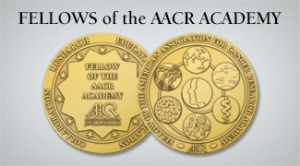 J. Michael Bishop, MD, Nobel laureate and chancellor emeritus of UCSF;
J. Michael Bishop, MD, Nobel laureate and chancellor emeritus of UCSF;- Elizabeth Blackburn, PhD, Nobel laureate and UCSF professor of biochemistry and biophysics;
- Yuet Wai Kan, MD, UCSF professor of hematology;
- Frank McCormick, PhD, director of the Helen Diller Family Comprehensive Cancer Center, and associate dean of the UCSF School of Medicine;
- Shinya Yamanaka, MD, PhD, Nobel laureate, UCSF professor of anatomy and senior investigator at the Gladstone Institute of Cardiovascular Disease.
Membership in the new academy is the most prestigious honor bestowed by the American Association for Cancer Research (AACR), the world’s oldest and largest scientific organization focused on preventing and curing cancer.
The Fellows of the AACR Academy was created “to recognize and honor distinguished scientists whose major scientific contributions have propelled significant innovation and progress against cancer,” the AACR said in announcing the inaugural class. “These fellows have been selected through a rigorous peer review process that evaluates individuals on the basis of their stellar scientific achievements in cancer research.”
The induction ceremony takes place during the AACR’s annual meeting being held April 6-10 in Washington D.C.
Altogether, the first class will consist of 106 scientists – the number symbolizes the age of the organization. The AACR was founded in 1907 by a group of physicians and scientists interested in cancer research.
Future members, who will be elected by members of the AACR Academy, will consist of a maximum of 11 individuals, in honor of the 11 founding members.
About UCSF Fellows of the AACR Academy
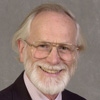 J. Michael Bishop is chancellor emeritus of UCSF, professor in the Department of Microbiology and Immunology, and director of the G. W. Hooper Foundation, a biomedical research unit at UCSF. Bishop joined the UCSF faculty in 1968, and was named UCSF chancellor in 1998. Since 2004, he also has held the Arthur and Toni Rembe Rock Distinguished Professorship. While serving as chancellor, Bishop continued to teach medical students and run his distinguished research lab. Bishop led UCSF for 11 years, steering the University through one of its most expansive periods of growth and achievement.
J. Michael Bishop is chancellor emeritus of UCSF, professor in the Department of Microbiology and Immunology, and director of the G. W. Hooper Foundation, a biomedical research unit at UCSF. Bishop joined the UCSF faculty in 1968, and was named UCSF chancellor in 1998. Since 2004, he also has held the Arthur and Toni Rembe Rock Distinguished Professorship. While serving as chancellor, Bishop continued to teach medical students and run his distinguished research lab. Bishop led UCSF for 11 years, steering the University through one of its most expansive periods of growth and achievement.
In 1989, Bishop was awarded the Nobel Prize in Physiology or Medicine with Harold Varmus, MD, for the discovery that growth regulating genes in normal cells can malfunction and initiate the abnormal growth processes of cancer. Bishop has received numerous awards in addition to the Nobel Prize, including the Albert Lasker Award for Basic Biomedical Research and the 2003 National Medal of Science.
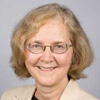 Elizabeth Blackburn is a molecular biologist and the Morris Herzstein Endowed Chair in Biology and Physiology at UCSF and professor in the departments of biochemistry/biophysics and microbiology/immunology.
Elizabeth Blackburn is a molecular biologist and the Morris Herzstein Endowed Chair in Biology and Physiology at UCSF and professor in the departments of biochemistry/biophysics and microbiology/immunology.
Blackburn, who joined the UCSF faculty in 1990, received the Nobel Prize in Physiology or Medicine in 2009 for her pioneering studies of telomeres, the tiny caps of DNA that bind the ends of chromosomes, and of telomerase, the enzyme that controls them. Blackburn shares the award with Carol W. Greider of Johns Hopkins University School of Medicine and Jack W. Szostak of Harvard Medical School. Their research revealed the fundamental role that telomeres play in normal aging and cancer, opening a new field of scientific inquiry. The telomerase enzyme is now a therapeutic target for diseases related to aging, as well as cancer.
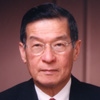 Yuet Wai Kan is an internationally recognized leader in the field of human genetics and the Louis K. Diamond Professor of Hematology at UCSF. Kan was the first to establish that a single DNA mutation could result in a human disease, demonstrating this in sickle cell anemia and thalassemia, and was the first to diagnose a human disease using DNA. He discovered DNA polymorphism, which is now extensively used for genetic analysis.
Yuet Wai Kan is an internationally recognized leader in the field of human genetics and the Louis K. Diamond Professor of Hematology at UCSF. Kan was the first to establish that a single DNA mutation could result in a human disease, demonstrating this in sickle cell anemia and thalassemia, and was the first to diagnose a human disease using DNA. He discovered DNA polymorphism, which is now extensively used for genetic analysis.
He has received many accolades and honors including the Albert Lasker Clinical Medical Research Award and the Shaw Prize in Life Science and Medicine. He is a member of the National Academy of Sciences. He joined the UCSF faculty in 1972.
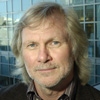 Frank McCormick is director of the UCSF Helen Diller Family Comprehensive Cancer Center and associate dean of the UCSF School of Medicine. An internationally renowned molecular biologist, McCormick helped pave the way toward the development of targeted cancer therapies. He was the vice president of research for Cetus Corporation in the 1980s, and in 1992 he founded Onyx Pharmaceuticals, where his pioneering research led to the development of a treatment for kidney and liver cancer.
Frank McCormick is director of the UCSF Helen Diller Family Comprehensive Cancer Center and associate dean of the UCSF School of Medicine. An internationally renowned molecular biologist, McCormick helped pave the way toward the development of targeted cancer therapies. He was the vice president of research for Cetus Corporation in the 1980s, and in 1992 he founded Onyx Pharmaceuticals, where his pioneering research led to the development of a treatment for kidney and liver cancer.
In 1996, McCormick was made a fellow of the Royal Society. He joined the UCSF faculty in 1997, and has led the UCSF cancer center since its inception in 1998. He served as AACR president from 2012 to 2013.
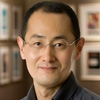 Shinya Yamanaka is director and professor of the Center for iPS Cell Research and Application at Kyoto University; a senior investigator at the Gladstone Institute of Cardiovascular Disease and professor of anatomy at UCSF. Yamanaka, who works in both Kyoto and San Francisco, is a former orthopedic surgeon who trained in biomedical research at Gladstone in the 1990s. He returned to San Francisco in 2007 as a Gladstone senior investigator and UCSF anatomy professor.
Shinya Yamanaka is director and professor of the Center for iPS Cell Research and Application at Kyoto University; a senior investigator at the Gladstone Institute of Cardiovascular Disease and professor of anatomy at UCSF. Yamanaka, who works in both Kyoto and San Francisco, is a former orthopedic surgeon who trained in biomedical research at Gladstone in the 1990s. He returned to San Francisco in 2007 as a Gladstone senior investigator and UCSF anatomy professor.
He won the 2012 Nobel Prize in Physiology or Medicine for his discovery of how to transform ordinary adult skin cells that, like embryonic stem cells, are capable of developing into any cell in the human body. He shares the prize with John B. Gurdon of the Gurdon Institute in England. The prize was awarded for their “discovery that mature cells can be reprogrammed to become pluripotent.’’